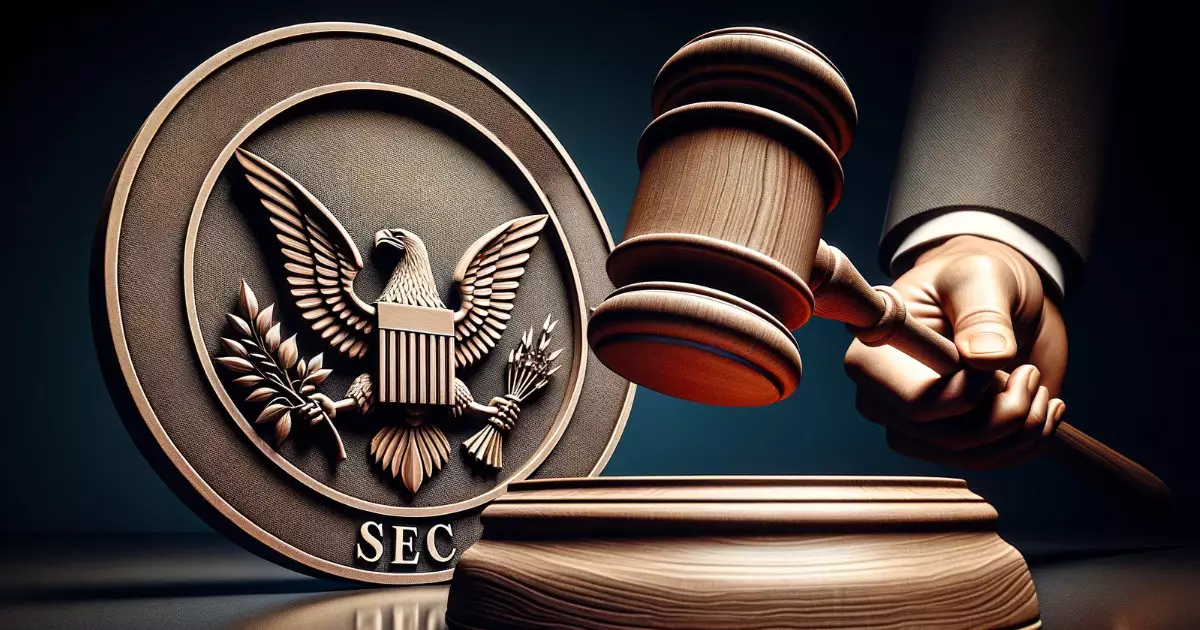U.S. District Judge Robert Shelby has issued a stern warning to attorneys from the Securities and Exchange Commission (SEC) over potential sanctions for their involvement in “misleading” court proceedings in a lawsuit against cryptocurrency firm Debt Box. According to court filings, the SEC obtained a temporary restraining order against Debt Box based on statements that were later proven to be false. Judge Shelby, presiding over the case in the Utah District Court, expressed serious concerns about the SEC’s representation of Debt Box’s activities and has ordered the watchdog to provide an explanation to the court in the coming days.
The SEC had accused Debt Box of illicitly transferring assets and investors’ funds overseas, using these claims to secure an initial freeze on the firm’s bank accounts as part of its case. However, it was later discovered that these claims were exaggerated, leading Judge Shelby to consider imposing sanctions on the SEC attorneys for presenting misleading arguments. Sanctions, as defined by the U.S. legal framework, typically involve monetary fines and are imposed on parties that knowingly submit false statements or violate court procedures.
Debt Box Proves Allegations False
Debt Box successfully demonstrated that it did not move funds outside the United States or close its bank accounts, contradicting the SEC’s initial allegations. The SEC filed a lawsuit against Debt Box in July, alleging that the company sold unregistered securities called “node licenses” starting in 2021. These licenses were purportedly presented as a means to mine cryptocurrency, but the SEC claims they were a facade for self-minting crypto using computer code.
In response to Judge Shelby’s findings regarding the SEC attorneys’ inaccurate and context-lacking arguments about Debt Box’s supposed overseas fund transfer, the judge has requested that the SEC lawyers address these concerns. The SEC has been given a two-week deadline to respond to the judge’s inquiries.
Calls for Greater Oversight
Cryptocurrency lawyer John E. Deaton voiced his opinion on the matter through social media, emphasizing the need for greater scrutiny of the SEC’s approach to cryptocurrency-related cases. Deaton accused the SEC of consistently deceiving the court in crypto cases over the past three years and suggested a personal vendetta against the industry. He specifically named SEC lawyers Jorge Tenreiro and Gurbir Grewal for intentionally misleading the court.
Deaton’s message highlighted broader issues, including judges’ criticism of the SEC lawyers’ commitment to the law and the SEC’s disregard for Congressional inquiries. He urged Congressman Patrick McHenry and other committee members to fulfill their oath and conduct rigorous oversight of SEC Chair Gary Gensler and the SEC. Deaton even called for the lawmakers to issue a Congressional subpoena against the SEC, an unprecedented move. He argued that challenging the SEC’s overreach and setting a precedent against excessive power within the administrative state is necessary, despite the potential for litigation.
The Importance of Accountability
The potential sanctions facing the SEC attorneys in the Debt Box lawsuit highlight the importance of accountability and accurate representation in legal proceedings. Ensuring that statements made to the court are truthful and supported by evidence is essential for maintaining the integrity of the legal system. Judge Shelby’s actions in raising concerns and requesting explanations demonstrate the judiciary’s commitment to upholding the principles of justice.
Moving forward, it will be crucial for the SEC to address the allegations of misleading court proceedings and provide a thorough and honest explanation to regain trust and credibility. Additionally, the calls for increased oversight and scrutiny of the SEC’s actions underscore the need for transparency and accountability in regulatory agencies, especially in fast-evolving sectors like cryptocurrency.
By holding the SEC accountable for its actions and demanding adherence to legal procedures, we can strive to achieve a fair and just legal system that maintains trust and protects the rights of all parties involved.

